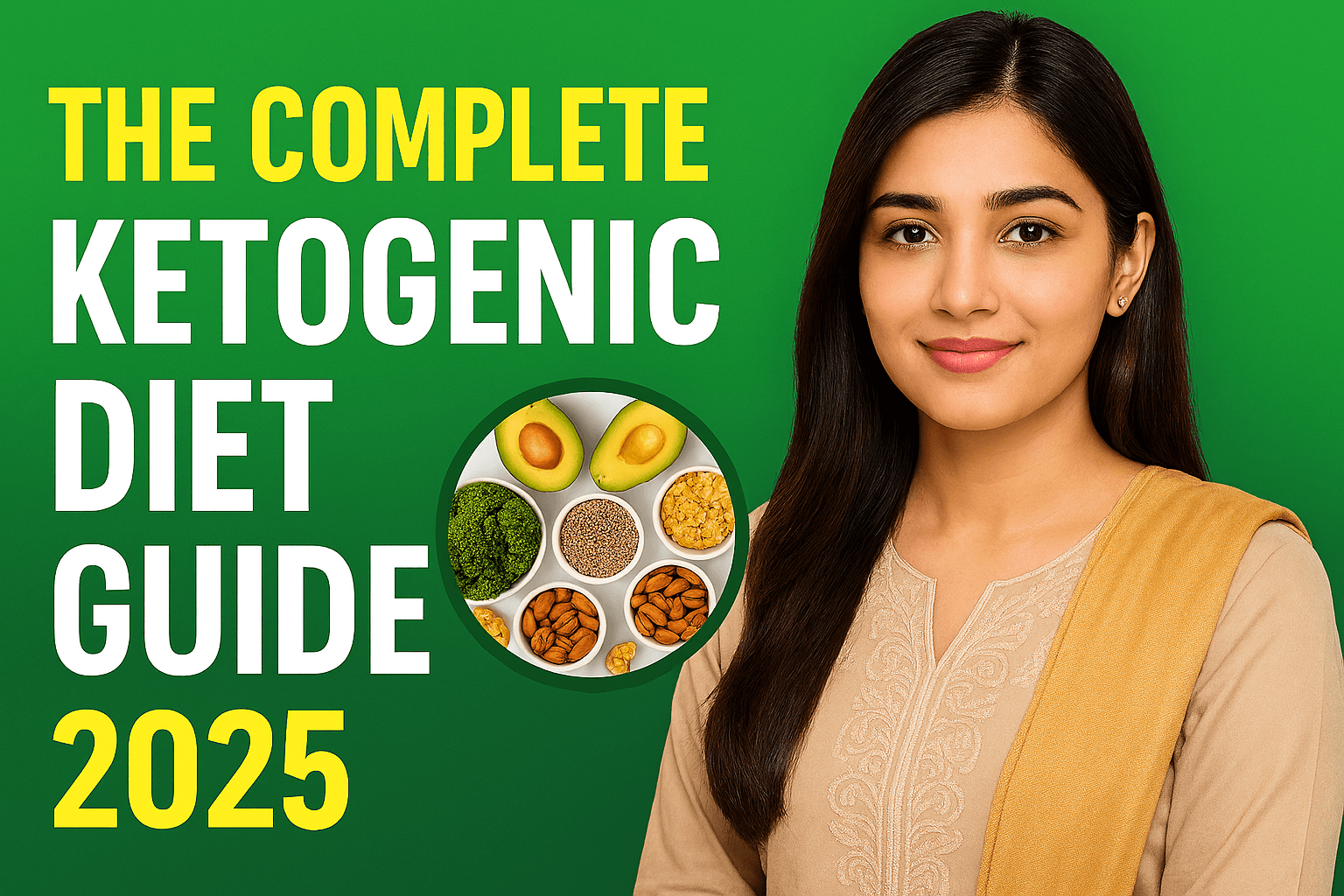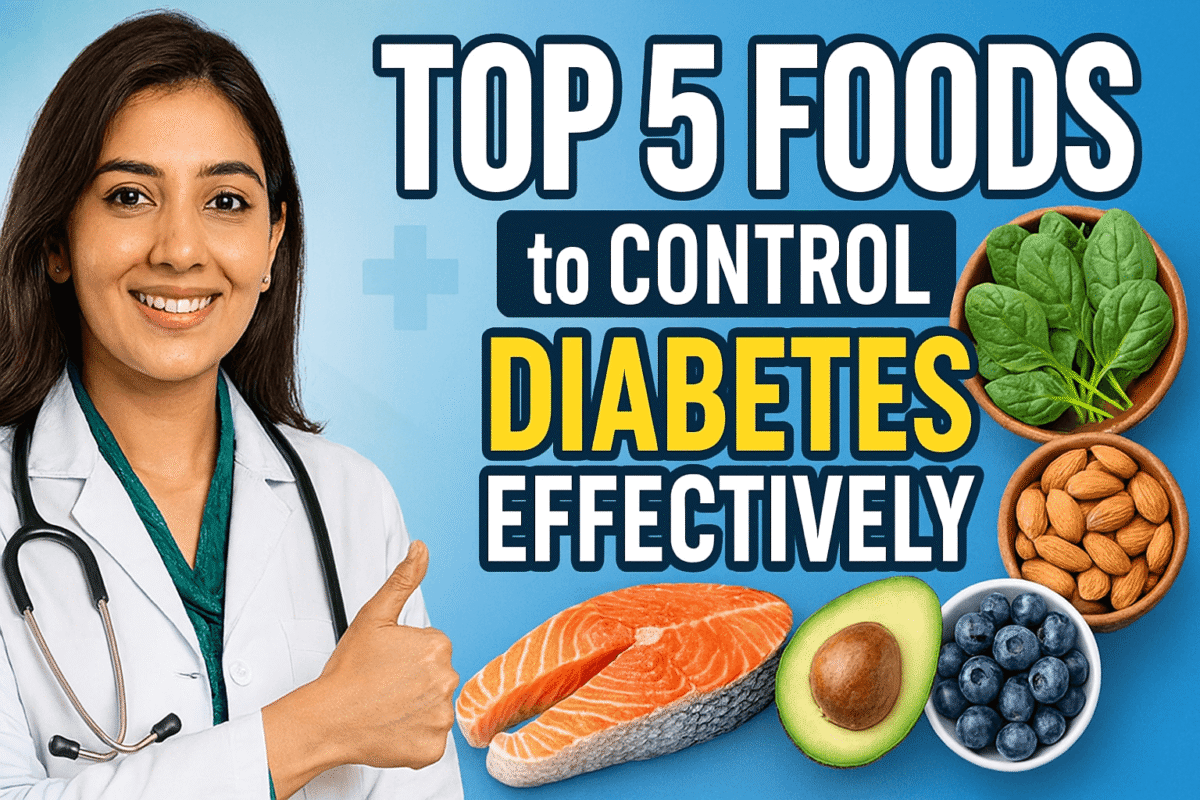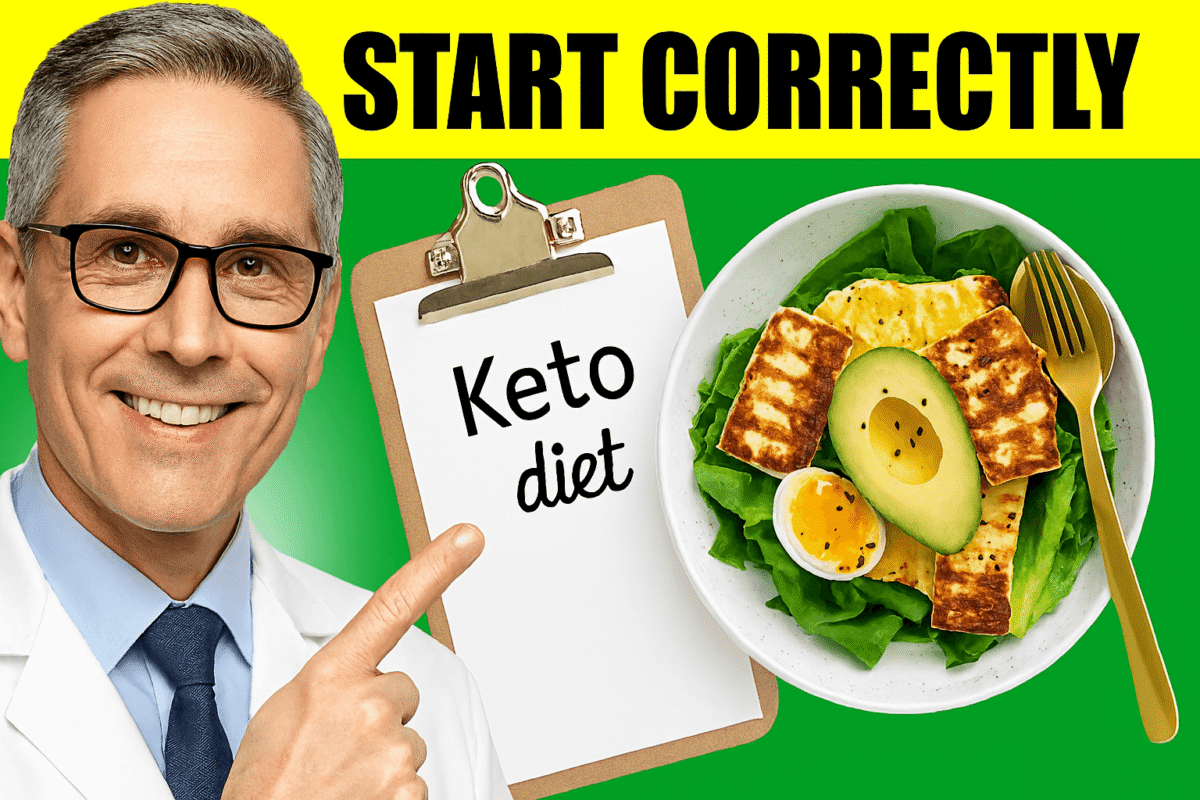Blog
The Complete Ketogenic Diet Guide 2025

What is the Ketogenic Diet? Your Path to Rapid Fat Burning
The ketogenic diet (commonly called "keto") represents a revolutionary high-fat, low-carbohydrate eating plan that transforms your metabolism into a powerful fat-burning machine. This scientifically-backed approach forces your body into ketosis, a metabolic state where you burn stored fat for energy instead of glucose.
Unlike traditional calorie-counting diets that often fail, the keto diet for weight loss works by dramatically reducing carbohydrates to under 20 grams daily while increasing healthy fats to 70-80% of your total calories. This macronutrient shift triggers rapid and sustainable weight loss without hunger.
The Science Behind Ketogenic Weight Loss Success
Ketosis occurs when your body depletes its glycogen stores and begins producing ketone bodies from fat breakdown. These ketones provide clean, efficient energy that eliminates the energy crashes associated with high-carb diets. Research demonstrates that people following a ketogenic diet plan experience:
- Accelerated fat loss, especially dangerous belly fat
- Reduced appetite and sugar cravings
- Stable energy levels throughout the day
- Improved mental clarity and focus
- Better blood sugar control
10 Science-Backed Ketogenic Diet Benefits for 2025
1. Rapid Weight Loss and Fat Burning
The keto diet produces faster weight loss compared to low-fat diets in both healthy individuals and those with metabolic conditions. By switching to fat adaptation, your body becomes incredibly efficient at burning stored fat for fuel.
2. Enhanced Heart Health and Cholesterol Improvement
Contrary to outdated dietary myths, the high-fat keto diet actually improves cardiovascular markers. Studies show significant reductions in:
- LDL (bad) cholesterol
- Triglycerides
- Blood pressure
- Blood glucose levels
While simultaneously increasing HDL (good) cholesterol levels.
3. Sustained Energy Without Crashes
Ketosis eliminates the blood sugar rollercoaster that causes afternoon energy crashes. Fat provides steady, long-lasting energy that keeps you productive and focused all day.
4. Proven Epilepsy Treatment
The ketogenic diet originated as a medical treatment for medication-resistant epilepsy in children. Clinical trials show 24% or more patients achieve complete seizure control through dietary ketosis.
5. Diabetes Management and Blood Sugar Control
For individuals with type 2 diabetes, the keto diet offers remarkable benefits. Many patients successfully reduce or eliminate diabetes medications while achieving normal A1c levels through consistent carbohydrate restriction.
6. PCOS Symptom Relief
Women with Polycystic Ovarian Syndrome (PCOS) experience significant improvements in:
- Insulin sensitivity
- Testosterone levels
- Body weight
- Hormone balance
- Fertility outcomes
7. Clearer Skin and Reduced Acne
The anti-inflammatory effects of ketosis, combined with reduced insulin spikes, often lead to clearer, healthier skin and fewer acne breakouts.
8. Neuroprotective Benefits
Emerging research suggests the ketogenic diet may help treat various brain conditions, including:
- Alzheimer's disease
- Parkinson's disease
- Traumatic brain injury
- ALS (Lou Gehrig's disease)
9. Cancer Treatment Support
Some studies indicate the keto diet may help shrink certain tumor types, particularly brain cancers, when used alongside conventional treatments.
10. Anti-Aging and Longevity
Ketosis triggers autophagy, your body's cellular cleanup process, potentially extending lifespan and improving overall health at the cellular level.
Essential Keto Diet Foods: What to Eat for Maximum Results
High-Fat Foods for Ketosis Success
Healthy fats should comprise 70-80% of your daily calories. Focus on:
Premium Cooking Fats:
- Grass-fed butter and ghee
- Extra virgin olive oil
- Avocado oil
- Coconut oil
- MCT oil (ideal for bulletproof coffee)
Protein-Rich Foods:
- Fatty fish (salmon, sardines, mackerel)
- Grass-fed beef and lamb
- Free-range poultry with skin
- Pasture-raised eggs
- Full-fat cheese (unprocessed varieties)
Low-Carb Vegetables for Nutritional Balance
Choose vegetables that grow above ground:
- Leafy greens (spinach, kale, arugula)
- Cruciferous vegetables (broccoli, cauliflower, Brussels sprouts)
- Avocados (technically a fruit but keto-friendly)
- Zucchini and summer squash
- Bell peppers and tomatoes
Keto-Approved Nuts and Seeds
Low-carb snacks include:
- Macadamia nuts (2g carbs per serving)
- Pecans (1g carbs per serving)
- Walnuts (2g carbs per serving)
- Chia seeds and flaxseeds
- Pumpkin seeds
Keto-Friendly Beverages
Stay hydrated with:
- Bulletproof coffee (coffee + MCT oil + butter)
- Plain water and sparkling water
- Herbal teas and green tea
- Bone broth
- Unsweetened almond/coconut milk
Foods to Avoid on Your Keto Journey
Eliminate these high-carb foods:
- All grains (wheat, rice, oats, quinoa)
- Sugar and artificial sweeteners (except stevia, erythritol)
- Starchy vegetables (potatoes, corn, carrots)
- Most fruits (except small portions of berries)
- Legumes (beans, lentils, chickpeas)
- Low-fat and "diet" products
- Processed foods and packaged snacks
Calculating Your Keto Macros for Optimal Results
Successful ketosis requires precise macronutrient ratios:
Standard Ketogenic Diet (SKD):
- 5-10% carbohydrates (20-50g daily)
- 20-25% protein (moderate intake)
- 70-80% healthy fats
Example Daily Macros (2000 calories):
- Carbs: 25g (100 calories)
- Protein: 100g (400 calories)
- Fat: 178g (1500 calories)
Net Carbs vs Total Carbs
Track net carbs using this simple formula: Net Carbs = Total Carbs - Dietary Fiber
Aim for under 20g net carbs daily during your first month to ensure ketosis.
Starting Your Keto Diet: 8 Essential Success Tips
1. Gradual Carb Reduction
Reduce carbohydrates slowly over 3-7 days to minimize keto flu symptoms.
2. Increase Electrolyte Intake
Electrolyte imbalances cause most keto side effects. Supplement with:
- Sodium (2-3g daily)
- Potassium (3-4g daily)
- Magnesium (400-600mg daily)
3. Stay Hydrated
Drink at least 8-10 glasses of water daily, as ketosis has a natural diuretic effect.
4. Prepare for Keto Flu
Initial symptoms may include:
- Headaches and fatigue
- Sugar cravings
- Brain fog
- Muscle cramps
These typically resolve within 3-7 days.
5. Don't Restrict Calories Initially
Focus on macronutrient ratios rather than calorie counting during your first month.
6. Keep Protein Moderate
Excessive protein can interfere with ketosis. Aim for 0.8-1.0g per pound of lean body mass.
7. Embrace Healthy Fats
If you're feeling low energy, you're likely not eating enough fat. Don't fear healthy fats!
8. Plan Your Meals
Meal prep prevents poor food choices when hunger strikes.
Types of Ketogenic Diets for Different Goals
Standard Ketogenic Diet (SKD)
Best for beginners: 5% carbs, 20% protein, 75% fat
Cyclical Ketogenic Diet (CKD)
For athletes: 5-6 keto days followed by 1-2 high-carb days
Targeted Ketogenic Diet (TKD)
For active individuals: Small amounts of carbs around workouts
High-Protein Ketogenic Diet
For bodybuilders: 30% protein, 65% fat, 5% carbs
Managing Keto Side Effects Naturally
Common Side Effects and Solutions:
Keto Flu:
- Increase electrolyte intake
- Drink bone broth
- Get adequate sleep
- Consider light exercise
Constipation:
- Eat more fibrous vegetables
- Increase water intake
- Add MCT oil to meals
- Consider magnesium supplementation
Bad Breath:
- Stay well-hydrated
- Practice good oral hygiene
- Use sugar-free mints or gum
- This typically resolves after 1-2 weeks
Initial Performance Decrease:
- Allow 2-4 weeks for fat adaptation
- Maintain electrolyte balance
- Don't restrict calories excessively
Keto Diet vs Other Popular Diets
Keto vs Low-Carb Diets
While both restrict carbohydrates, ketogenic diets specifically target ketosis through very low carb intake (under 50g daily) and high fat consumption.
Keto vs Mediterranean Diet
Both emphasize healthy fats, but the Mediterranean diet includes more carbohydrates from whole grains and fruits, making ketosis unlikely.
Keto vs Low-Fat Diets
Research consistently shows keto diets produce superior weight loss and cardiovascular improvements compared to traditional low-fat approaches.
Frequently Asked Questions About Keto
Can I Exercise on a Keto Diet?
Absolutely! While initial performance may decrease during fat adaptation, most people maintain or improve their fitness levels within 4-6 weeks.
Is Ketosis Safe Long-Term?
For healthy individuals, nutritional ketosis is safe and beneficial. However, those with certain medical conditions should consult healthcare providers before starting.
How Do I Know I'm in Ketosis?
Signs include:
- Increased energy after initial adaptation
- Reduced appetite
- Metallic taste or breath odor
- Ketone test strips showing ketones in urine
Can Women Over 50 Follow Keto?
Yes, post-menopausal women often experience excellent results with keto, including improved bone density and hormonal balance.
Essential Keto Supplements for Success
While not mandatory, these supplements can enhance your keto experience:
Electrolyte Complex: Prevents keto flu and maintains hydration MCT Oil: Rapidly converts to ketones for quick energy Magnesium Glycinate: Supports muscle function and sleep Omega-3 Fish Oil: Reduces inflammation and supports heart health Vitamin D3: Often deficient in those avoiding fortified grains
Conclusion: Transform Your Health with Ketogenic Living
The ketogenic diet offers a scientifically-proven pathway to rapid weight loss, improved energy, and enhanced overall health. By following this comprehensive guide and maintaining consistency with your macro ratios, you can successfully achieve and maintain ketosis for lasting results.
Remember, sustainable weight loss occurs when you make the keto lifestyle a long-term commitment rather than a short-term diet. Start gradually, listen to your body, and don't hesitate to consult healthcare professionals if you have underlying medical conditions.
Ready to transform your metabolism and unlock your body's fat-burning potential? Begin your ketogenic journey today and experience the life-changing benefits of this revolutionary eating approach.
Disclaimer: This guide is for educational purposes only and should not replace professional medical advice. Consult your healthcare provider before starting any new diet, especially if you have diabetes, heart disease, or other medical conditions.
The Complete Ketogenic Diet Guide 2025: Transform Your Body with Proven Weight Loss Results
What is the Ketogenic Diet? Your Path to Rapid Fat Burning
The ketogenic diet (commonly called "keto") represents a revolutionary high-fat, low-carbohydrate eating plan that transforms your metabolism into a powerful fat-burning machine. This scientifically-backed approach forces your body into ketosis, a metabolic state where you burn stored fat for energy instead of glucose.
Unlike traditional calorie-counting diets that often fail, the keto diet for weight loss works by dramatically reducing carbohydrates to under 20 grams daily while increasing healthy fats to 70-80% of your total calories. This macronutrient shift triggers rapid and sustainable weight loss without hunger.
The Science Behind Ketogenic Weight Loss Success
Ketosis occurs when your body depletes its glycogen stores and begins producing ketone bodies from fat breakdown. These ketones provide clean, efficient energy that eliminates the energy crashes associated with high-carb diets. Research demonstrates that people following a ketogenic diet plan experience:
- Accelerated fat loss, especially dangerous belly fat
- Reduced appetite and sugar cravings
- Stable energy levels throughout the day
- Improved mental clarity and focus
- Better blood sugar control
10 Science-Backed Ketogenic Diet Benefits for 2025
1. Rapid Weight Loss and Fat Burning
The keto diet produces faster weight loss compared to low-fat diets in both healthy individuals and those with metabolic conditions. By switching to fat adaptation, your body becomes incredibly efficient at burning stored fat for fuel.
2. Enhanced Heart Health and Cholesterol Improvement
Contrary to outdated dietary myths, the high-fat keto diet actually improves cardiovascular markers. Studies show significant reductions in:
- LDL (bad) cholesterol
- Triglycerides
- Blood pressure
- Blood glucose levels
While simultaneously increasing HDL (good) cholesterol levels.
3. Sustained Energy Without Crashes
Ketosis eliminates the blood sugar rollercoaster that causes afternoon energy crashes. Fat provides steady, long-lasting energy that keeps you productive and focused all day.
4. Proven Epilepsy Treatment
The ketogenic diet originated as a medical treatment for medication-resistant epilepsy in children. Clinical trials show 24% or more patients achieve complete seizure control through dietary ketosis.
5. Diabetes Management and Blood Sugar Control
For individuals with type 2 diabetes, the keto diet offers remarkable benefits. Many patients successfully reduce or eliminate diabetes medications while achieving normal A1c levels through consistent carbohydrate restriction.
6. PCOS Symptom Relief
Women with Polycystic Ovarian Syndrome (PCOS) experience significant improvements in:
- Insulin sensitivity
- Testosterone levels
- Body weight
- Hormone balance
- Fertility outcomes
7. Clearer Skin and Reduced Acne
The anti-inflammatory effects of ketosis, combined with reduced insulin spikes, often lead to clearer, healthier skin and fewer acne breakouts.
8. Neuroprotective Benefits
Emerging research suggests the ketogenic diet may help treat various brain conditions, including:
- Alzheimer's disease
- Parkinson's disease
- Traumatic brain injury
- ALS (Lou Gehrig's disease)
9. Cancer Treatment Support
Some studies indicate the keto diet may help shrink certain tumor types, particularly brain cancers, when used alongside conventional treatments.
10. Anti-Aging and Longevity
Ketosis triggers autophagy, your body's cellular cleanup process, potentially extending lifespan and improving overall health at the cellular level.
Essential Keto Diet Foods: What to Eat for Maximum Results
High-Fat Foods for Ketosis Success
Healthy fats should comprise 70-80% of your daily calories. Focus on:
Premium Cooking Fats:
- Grass-fed butter and ghee
- Extra virgin olive oil
- Avocado oil
- Coconut oil
- MCT oil (ideal for bulletproof coffee)
Protein-Rich Foods:
- Fatty fish (salmon, sardines, mackerel)
- Grass-fed beef and lamb
- Free-range poultry with skin
- Pasture-raised eggs
- Full-fat cheese (unprocessed varieties)
Low-Carb Vegetables for Nutritional Balance
Choose vegetables that grow above ground:
- Leafy greens (spinach, kale, arugula)
- Cruciferous vegetables (broccoli, cauliflower, Brussels sprouts)
- Avocados (technically a fruit but keto-friendly)
- Zucchini and summer squash
- Bell peppers and tomatoes
Keto-Approved Nuts and Seeds
Low-carb snacks include:
- Macadamia nuts (2g carbs per serving)
- Pecans (1g carbs per serving)
- Walnuts (2g carbs per serving)
- Chia seeds and flaxseeds
- Pumpkin seeds
Keto-Friendly Beverages
Stay hydrated with:
- Bulletproof coffee (coffee + MCT oil + butter)
- Plain water and sparkling water
- Herbal teas and green tea
- Bone broth
- Unsweetened almond/coconut milk
Foods to Avoid on Your Keto Journey
Eliminate these high-carb foods:
- All grains (wheat, rice, oats, quinoa)
- Sugar and artificial sweeteners (except stevia, erythritol)
- Starchy vegetables (potatoes, corn, carrots)
- Most fruits (except small portions of berries)
- Legumes (beans, lentils, chickpeas)
- Low-fat and "diet" products
- Processed foods and packaged snacks
Calculating Your Keto Macros for Optimal Results
Successful ketosis requires precise macronutrient ratios:
Standard Ketogenic Diet (SKD):
- 5-10% carbohydrates (20-50g daily)
- 20-25% protein (moderate intake)
- 70-80% healthy fats
Example Daily Macros (2000 calories):
- Carbs: 25g (100 calories)
- Protein: 100g (400 calories)
- Fat: 178g (1500 calories)
Net Carbs vs Total Carbs
Track net carbs using this simple formula: Net Carbs = Total Carbs - Dietary Fiber
Aim for under 20g net carbs daily during your first month to ensure ketosis.
Starting Your Keto Diet: 8 Essential Success Tips
1. Gradual Carb Reduction
Reduce carbohydrates slowly over 3-7 days to minimize keto flu symptoms.
2. Increase Electrolyte Intake
Electrolyte imbalances cause most keto side effects. Supplement with:
- Sodium (2-3g daily)
- Potassium (3-4g daily)
- Magnesium (400-600mg daily)
3. Stay Hydrated
Drink at least 8-10 glasses of water daily, as ketosis has a natural diuretic effect.
4. Prepare for Keto Flu
Initial symptoms may include:
- Headaches and fatigue
- Sugar cravings
- Brain fog
- Muscle cramps
These typically resolve within 3-7 days.
5. Don't Restrict Calories Initially
Focus on macronutrient ratios rather than calorie counting during your first month.
6. Keep Protein Moderate
Excessive protein can interfere with ketosis. Aim for 0.8-1.0g per pound of lean body mass.
7. Embrace Healthy Fats
If you're feeling low energy, you're likely not eating enough fat. Don't fear healthy fats!
8. Plan Your Meals
Meal prep prevents poor food choices when hunger strikes.
Types of Ketogenic Diets for Different Goals
Standard Ketogenic Diet (SKD)
Best for beginners: 5% carbs, 20% protein, 75% fat
Cyclical Ketogenic Diet (CKD)
For athletes: 5-6 keto days followed by 1-2 high-carb days
Targeted Ketogenic Diet (TKD)
For active individuals: Small amounts of carbs around workouts
High-Protein Ketogenic Diet
For bodybuilders: 30% protein, 65% fat, 5% carbs
Managing Keto Side Effects Naturally
Common Side Effects and Solutions:
Keto Flu:
- Increase electrolyte intake
- Drink bone broth
- Get adequate sleep
- Consider light exercise
Constipation:
- Eat more fibrous vegetables
- Increase water intake
- Add MCT oil to meals
- Consider magnesium supplementation
Bad Breath:
- Stay well-hydrated
- Practice good oral hygiene
- Use sugar-free mints or gum
- This typically resolves after 1-2 weeks
Initial Performance Decrease:
- Allow 2-4 weeks for fat adaptation
- Maintain electrolyte balance
- Don't restrict calories excessively
Keto Diet vs Other Popular Diets
Keto vs Low-Carb Diets
While both restrict carbohydrates, ketogenic diets specifically target ketosis through very low carb intake (under 50g daily) and high fat consumption.
Keto vs Mediterranean Diet
Both emphasize healthy fats, but the Mediterranean diet includes more carbohydrates from whole grains and fruits, making ketosis unlikely.
Keto vs Low-Fat Diets
Research consistently shows keto diets produce superior weight loss and cardiovascular improvements compared to traditional low-fat approaches.
Frequently Asked Questions About Keto
Can I Exercise on a Keto Diet?
Absolutely! While initial performance may decrease during fat adaptation, most people maintain or improve their fitness levels within 4-6 weeks.
Is Ketosis Safe Long-Term?
For healthy individuals, nutritional ketosis is safe and beneficial. However, those with certain medical conditions should consult healthcare providers before starting.
How Do I Know I'm in Ketosis?
Signs include:
- Increased energy after initial adaptation
- Reduced appetite
- Metallic taste or breath odor
- Ketone test strips showing ketones in urine
Can Women Over 50 Follow Keto?
Yes, post-menopausal women often experience excellent results with keto, including improved bone density and hormonal balance.
Essential Keto Supplements for Success
While not mandatory, these supplements can enhance your keto experience:
Electrolyte Complex: Prevents keto flu and maintains hydration MCT Oil: Rapidly converts to ketones for quick energy Magnesium Glycinate: Supports muscle function and sleep Omega-3 Fish Oil: Reduces inflammation and supports heart health Vitamin D3: Often deficient in those avoiding fortified grains
Conclusion: Transform Your Health with Ketogenic Living
The ketogenic diet offers a scientifically-proven pathway to rapid weight loss, improved energy, and enhanced overall health. By following this compre
The Complete Ketogenic Diet Guide 2025: Transform Your Body with Proven Weight Loss Results
What is the Ketogenic Diet? Your Path to Rapid Fat Burning
The ketogenic diet (commonly called "keto") represents a revolutionary high-fat, low-carbohydrate eating plan that transforms your metabolism into a powerful fat-burning machine. This scientifically-backed approach forces your body into ketosis, a metabolic state where you burn stored fat for energy instead of glucose.
Unlike traditional calorie-counting diets that often fail, the keto diet for weight loss works by dramatically reducing carbohydrates to under 20 grams daily while increasing healthy fats to 70-80% of your total calories. This macronutrient shift triggers rapid and sustainable weight loss without hunger.
The Science Behind Ketogenic Weight Loss Success
Ketosis occurs when your body depletes its glycogen stores and begins producing ketone bodies from fat breakdown. These ketones provide clean, efficient energy that eliminates the energy crashes associated with high-carb diets. Research demonstrates that people following a ketogenic diet plan experience:
- Accelerated fat loss, especially dangerous belly fat
- Reduced appetite and sugar cravings
- Stable energy levels throughout the day
- Improved mental clarity and focus
- Better blood sugar control
10 Science-Backed Ketogenic Diet Benefits for 2025
1. Rapid Weight Loss and Fat Burning
The keto diet produces faster weight loss compared to low-fat diets in both healthy individuals and those with metabolic conditions. By switching to fat adaptation, your body becomes incredibly efficient at burning stored fat for fuel.
2. Enhanced Heart Health and Cholesterol Improvement
Contrary to outdated dietary myths, the high-fat keto diet actually improves cardiovascular markers. Studies show significant reductions in:
- LDL (bad) cholesterol
- Triglycerides
- Blood pressure
- Blood glucose levels
While simultaneously increasing HDL (good) cholesterol levels.
3. Sustained Energy Without Crashes
Ketosis eliminates the blood sugar rollercoaster that causes afternoon energy crashes. Fat provides steady, long-lasting energy that keeps you productive and focused all day.
4. Proven Epilepsy Treatment
The ketogenic diet originated as a medical treatment for medication-resistant epilepsy in children. Clinical trials show 24% or more patients achieve complete seizure control through dietary ketosis.
5. Diabetes Management and Blood Sugar Control
For individuals with type 2 diabetes, the keto diet offers remarkable benefits. Many patients successfully reduce or eliminate diabetes medications while achieving normal A1c levels through consistent carbohydrate restriction.
6. PCOS Symptom Relief
Women with Polycystic Ovarian Syndrome (PCOS) experience significant improvements in:
- Insulin sensitivity
- Testosterone levels
- Body weight
- Hormone balance
- Fertility outcomes
7. Clearer Skin and Reduced Acne
The anti-inflammatory effects of ketosis, combined with reduced insulin spikes, often lead to clearer, healthier skin and fewer acne breakouts.
8. Neuroprotective Benefits
Emerging research suggests the ketogenic diet may help treat various brain conditions, including:
- Alzheimer's disease
- Parkinson's disease
- Traumatic brain injury
- ALS (Lou Gehrig's disease)
9. Cancer Treatment Support
Some studies indicate the keto diet may help shrink certain tumor types, particularly brain cancers, when used alongside conventional treatments.
10. Anti-Aging and Longevity
Ketosis triggers autophagy, your body's cellular cleanup process, potentially extending lifespan and improving overall health at the cellular level.
Essential Keto Diet Foods: What to Eat for Maximum Results
High-Fat Foods for Ketosis Success
Healthy fats should comprise 70-80% of your daily calories. Focus on:
Premium Cooking Fats:
- Grass-fed butter and ghee
- Extra virgin olive oil
- Avocado oil
- Coconut oil
- MCT oil (ideal for bulletproof coffee)
Protein-Rich Foods:
- Fatty fish (salmon, sardines, mackerel)
- Grass-fed beef and lamb
- Free-range poultry with skin
- Pasture-raised eggs
- Full-fat cheese (unprocessed varieties)
Low-Carb Vegetables for Nutritional Balance
Choose vegetables that grow above ground:
- Leafy greens (spinach, kale, arugula)
- Cruciferous vegetables (broccoli, cauliflower, Brussels sprouts)
- Avocados (technically a fruit but keto-friendly)
- Zucchini and summer squash
- Bell peppers and tomatoes
Keto-Approved Nuts and Seeds
Low-carb snacks include:
- Macadamia nuts (2g carbs per serving)
- Pecans (1g carbs per serving)
- Walnuts (2g carbs per serving)
- Chia seeds and flaxseeds
- Pumpkin seeds
Keto-Friendly Beverages
Stay hydrated with:
- Bulletproof coffee (coffee + MCT oil + butter)
- Plain water and sparkling water
- Herbal teas and green tea
- Bone broth
- Unsweetened almond/coconut milk
Foods to Avoid on Your Keto Journey
Eliminate these high-carb foods:
- All grains (wheat, rice, oats, quinoa)
- Sugar and artificial sweeteners (except stevia, erythritol)
- Starchy vegetables (potatoes, corn, carrots)
- Most fruits (except small portions of berries)
- Legumes (beans, lentils, chickpeas)
- Low-fat and "diet" products
- Processed foods and packaged snacks
Calculating Your Keto Macros for Optimal Results
Successful ketosis requires precise macronutrient ratios:
Standard Ketogenic Diet (SKD):
- 5-10% carbohydrates (20-50g daily)
- 20-25% protein (moderate intake)
- 70-80% healthy fats
Example Daily Macros (2000 calories):
- Carbs: 25g (100 calories)
- Protein: 100g (400 calories)
- Fat: 178g (1500 calories)
Net Carbs vs Total Carbs
Track net carbs using this simple formula: Net Carbs = Total Carbs - Dietary Fiber
Aim for under 20g net carbs daily during your first month to ensure ketosis.
Starting Your Keto Diet: 8 Essential Success Tips
1. Gradual Carb Reduction
Reduce carbohydrates slowly over 3-7 days to minimize keto flu symptoms.
2. Increase Electrolyte Intake
Electrolyte imbalances cause most keto side effects. Supplement with:
- Sodium (2-3g daily)
- Potassium (3-4g daily)
- Magnesium (400-600mg daily)
3. Stay Hydrated
Drink at least 8-10 glasses of water daily, as ketosis has a natural diuretic effect.
4. Prepare for Keto Flu
Initial symptoms may include:
- Headaches and fatigue
- Sugar cravings
- Brain fog
- Muscle cramps
These typically resolve within 3-7 days.
5. Don't Restrict Calories Initially
Focus on macronutrient ratios rather than calorie counting during your first month.
6. Keep Protein Moderate
Excessive protein can interfere with ketosis. Aim for 0.8-1.0g per pound of lean body mass.
7. Embrace Healthy Fats
If you're feeling low energy, you're likely not eating enough fat. Don't fear healthy fats!
8. Plan Your Meals
Meal prep prevents poor food choices when hunger strikes.
Types of Ketogenic Diets for Different Goals
Standard Ketogenic Diet (SKD)
Best for beginners: 5% carbs, 20% protein, 75% fat
Cyclical Ketogenic Diet (CKD)
For athletes: 5-6 keto days followed by 1-2 high-carb days
Targeted Ketogenic Diet (TKD)
For active individuals: Small amounts of carbs around workouts
High-Protein Ketogenic Diet
For bodybuilders: 30% protein, 65% fat, 5% carbs
Managing Keto Side Effects Naturally
Common Side Effects and Solutions:
Keto Flu:
- Increase electrolyte intake
- Drink bone broth
- Get adequate sleep
- Consider light exercise
Constipation:
- Eat more fibrous vegetables
- Increase water intake
- Add MCT oil to meals
- Consider magnesium supplementation
Bad Breath:
- Stay well-hydrated
- Practice good oral hygiene
- Use sugar-free mints or gum
- This typically resolves after 1-2 weeks
Initial Performance Decrease:
- Allow 2-4 weeks for fat adaptation
- Maintain electrolyte balance
- Don't restrict calories excessively
Keto Diet vs Other Popular Diets
Keto vs Low-Carb Diets
While both restrict carbohydrates, ketogenic diets specifically target ketosis through very low carb intake (under 50g daily) and high fat consumption.
Keto vs Mediterranean Diet
Both emphasize healthy fats, but the Mediterranean diet includes more carbohydrates from whole grains and fruits, making ketosis unlikely.
Keto vs Low-Fat Diets
Research consistently shows keto diets produce superior weight loss and cardiovascular improvements compared to traditional low-fat approaches.
Frequently Asked Questions About Keto
Can I Exercise on a Keto Diet?
Absolutely! While initial performance may decrease during fat adaptation, most people maintain or improve their fitness levels within 4-6 weeks.
Is Ketosis Safe Long-Term?
For healthy individuals, nutritional ketosis is safe and beneficial. However, those with certain medical conditions should consult healthcare providers before starting.
How Do I Know I'm in Ketosis?
Signs include:
- Increased energy after initial adaptation
- Reduced appetite
- Metallic taste or breath odor
- Ketone test strips showing ketones in urine
Can Women Over 50 Follow Keto?
Yes, post-menopausal women often experience excellent results with keto, including improved bone density and hormonal balance.
Essential Keto Supplements for Success
While not mandatory, these supplements can enhance your keto experience:
Electrolyte Complex: Prevents keto flu and maintains hydration MCT Oil: Rapidly converts to ketones for quick energy Magnesium Glycinate: Supports muscle function and sleep Omega-3 Fish Oil: Reduces inflammation and supports heart health Vitamin D3: Often deficient in those avoiding fortified grains
Conclusion: Transform Your Health with Ketogenic Living
The ketogenic diet offers a scientifically-proven pathway to rapid weight loss, improved energy, and enhanced overall health. By following this comprehensive guide and maintaining consistency with your macro ratios, you can successfully achieve and maintain ketosis for lasting results.
Remember, sustainable weight loss occurs when you make the keto lifestyle a long-term commitment rather than a short-term diet. Start gradually, listen to your body, and don't hesitate to consult healthcare professionals if you have underlying medical conditions.
Ready to transform your metabolism and unlock your body's fat-burning potential? Begin your ketogenic journey today and experience the life-changing benefits of this revolutionary eating approach.
Disclaimer: This guide is for educational purposes only and should not replace professional medical advice. Consult your healthcare provider before starting any new diet, especially if you have diabetes, heart disease, or other medical conditions.hensive guide and maintaining consistency with your macro ratios, you can successfully achieve and maintain ketosis for lasting results.
Remember, sustainable weight loss occurs when you make the keto lifestyle a long-term commitment rather than a short-term diet. Start gradually, listen to your body, and don't hesitate to consult healthcare professionals if you have underlying medical conditions.
Ready to transform your metabolism and unlock your body's fat-burning potential? Begin your ketogenic journey today and experience the life-changing benefits of this revolutionary eating approach.
Disclaimer: This guide is for educational purposes only and should not replace professional medical advice. Consult your healthcare provider before starting any new diet, especially if you have diabetes, heart disease, or other medical conditions.





